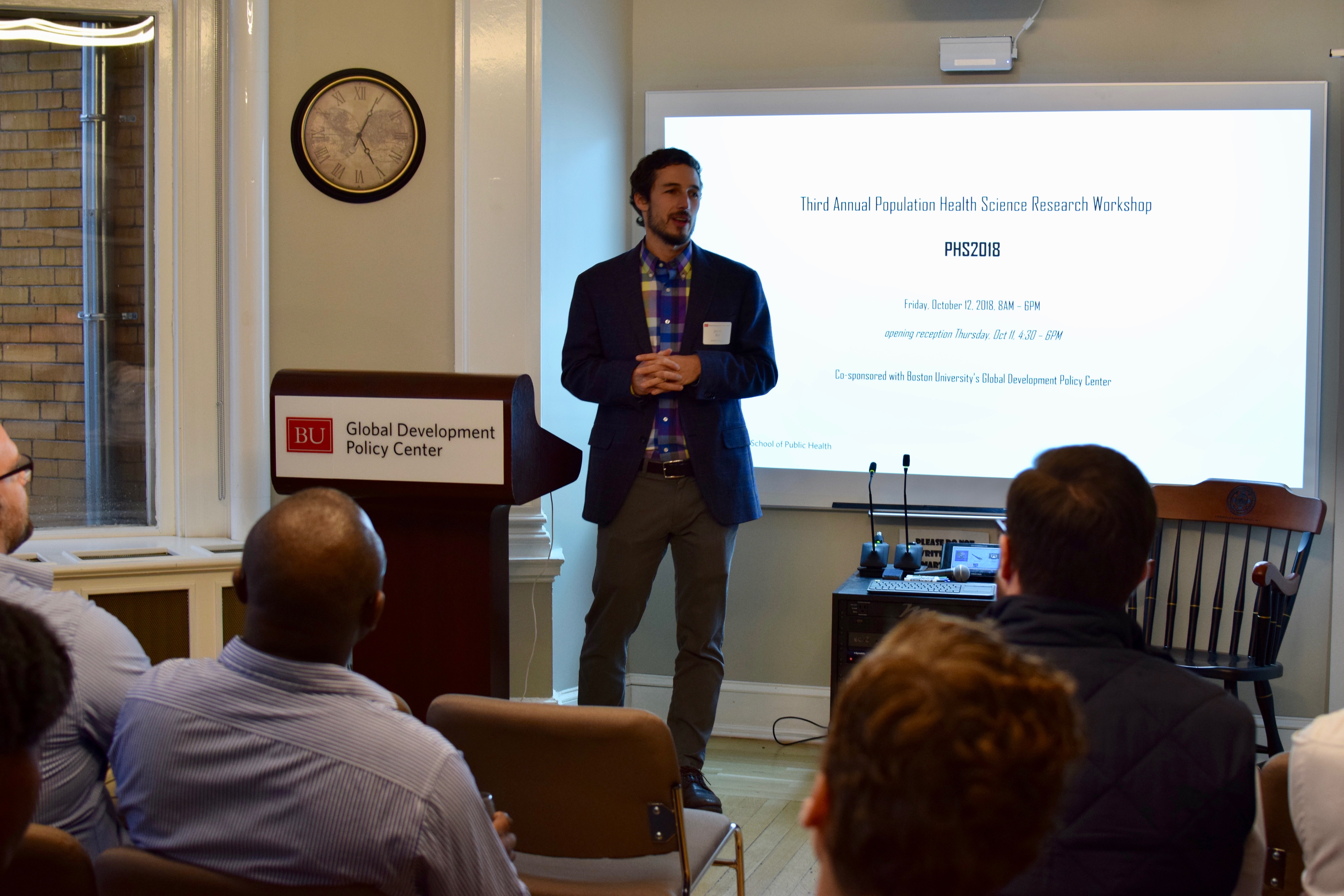HCI Hosts 3rd Annual Population Health Science Research Workshop
On October 11-12, 2018, the BU GDP Center’s Human Capital Initiative (HCI) co-hosted the Population Health Science Research Workshop (PHS) with BU’s School of Public Health. Prof. Jacob Bor, HCI core faculty, convened the workshop with School of Public Health Dean Sandro Galea. Economists, epidemiologists, and social scientists from schools across the country presented work-in-progress in the full-day workshop. The workshop featured in depth discussion of nine papers, a poster session, with papers selected by an advisory committee. The GDP Center hosted a welcome reception on the evening of the workshop.
According to Professor Bor:
“We are at a moment of unprecedented interest in population health as a measure of collective wellbeing and as an instrument for broader development policy. However, population health research remains fractured by existing institutional boundaries. We convened PHS as a space for scholars to come together from across disciplines to learn from one another and to identify and advance the frontier in population health science.”
Papers covered a wide range of determinants of population health.
In the session on “health and politics”, Kevin Croke (Harvard) presented on the political returns to bednet distribution in Tanzania. Mustafa Hussein (Wisconsin) shared work on the health impacts of living wage ordinances. And Kit Carpenter (Vanderbilt) presented on the impact of same-sex marriage legislation on health care utilization.
A session on “population therapeutics” featured work by Anna Chorniy (Princeton) on long-run educational outcomes of ADHD medications, Frank Lichtenberg (Colombia) on the value of pharmaceutical innovation, and John Jackson (Johns Hopkins) on the impacts of pharmacy closures on continuity of care.
In a final session on “health behavior and decision-making”, Margaret Triyana (Notre Dame) presented on a smoking cessation program in Indonesia; Prerna Rakheja (Johns Hopkins) presented a study exploring whether there is a genetic basis for probabilistic thinking, with implications for human capital investment; and Nina Cesare (Boston University) presented work measuring exercise behaviors using Twitter data.
In an invited lecture, “Behavior Change and Its Discontents,” Prof. Grant Miller questioned the logic of “demand creation” interventions that seek to persuade people to adopt behaviors that conflict with their preferences. A lively discussion ensued on the ethics of different forms of public health interventions and the role of government in improving population health.
Now in its third year, PHS is emerging as a leading interdisciplinary forum to present rigorous scholarship in population health. “We have been very pleased with the response. We’ve received nearly 80 submissions each year and have been able to feature very high caliber scholarship,” said Dr. Bor. “At the same time, the intimate nature of the meeting has fostered a new community of scholars, many of them junior faculty, students, and post-docs.”
